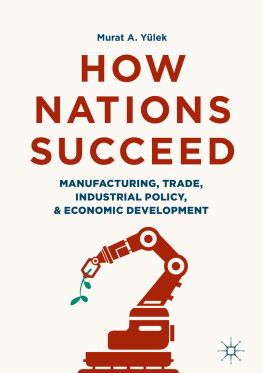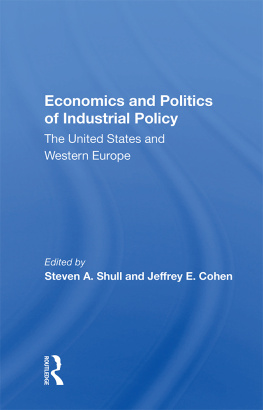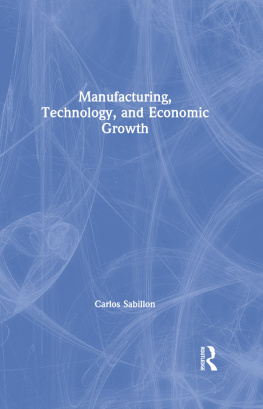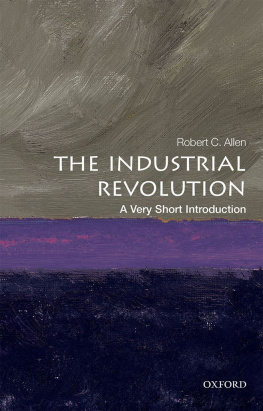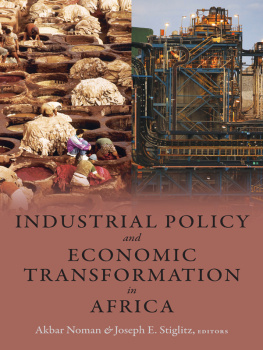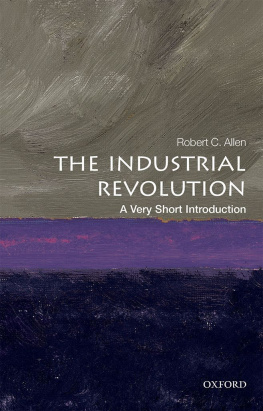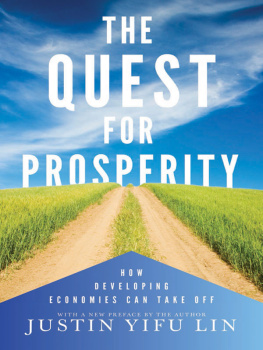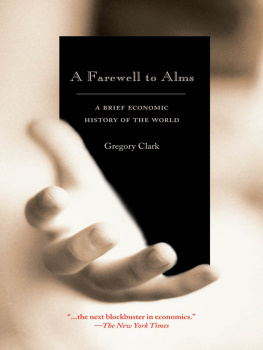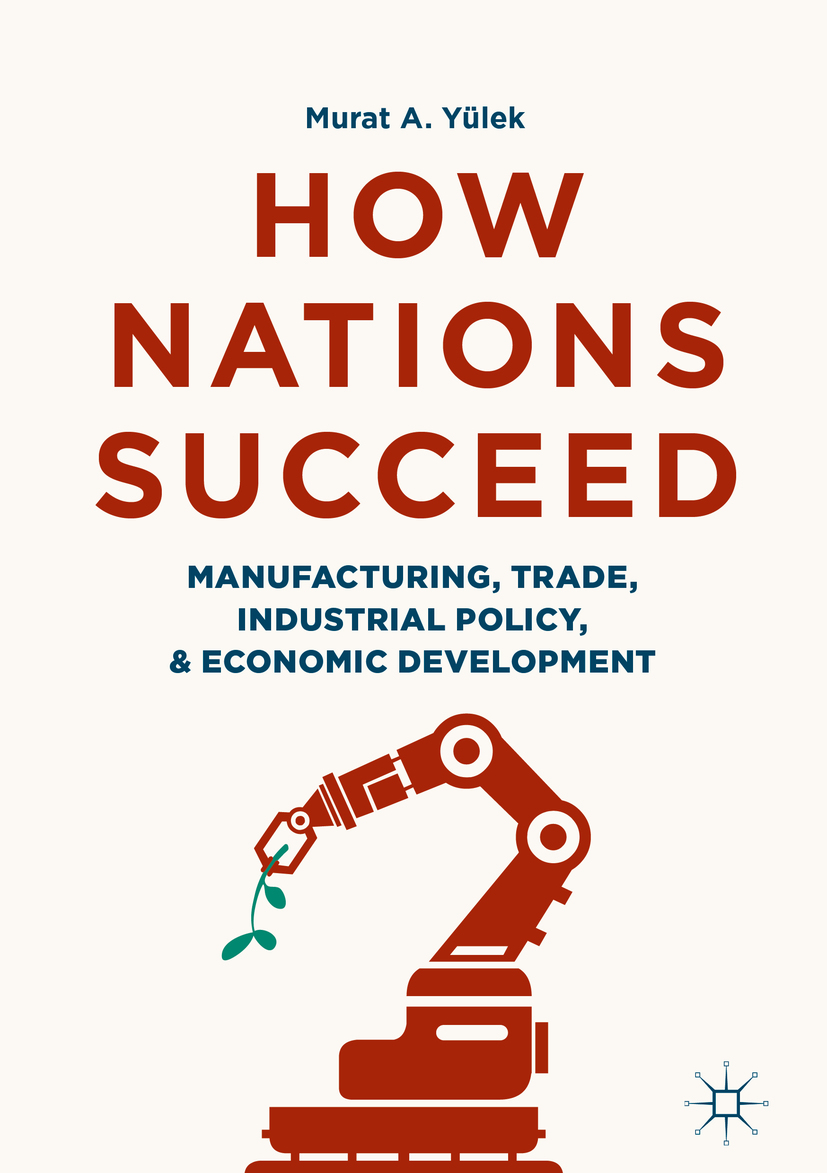Murat A. Ylek
How Nations Succeed Manufacturing, Trade, Industrial Policy, and Economic Development
Murat A. Ylek
Istanbul Commerce University, Istanbul, Turkey
ISBN 978-981-13-0567-2 e-ISBN 978-981-13-0568-9
https://doi.org/10.1007/978-981-13-0568-9
Library of Congress Control Number: 2018947747
The Editor(s) (if applicable) and The Author(s) 2018
This work is subject to copyright. All rights are solely and exclusively licensed by the Publisher, whether the whole or part of the material is concerned, specifically the rights of translation, reprinting, reuse of illustrations, recitation, broadcasting, reproduction on microfilms or in any other physical way, and transmission or information storage and retrieval, electronic adaptation, computer software, or by similar or dissimilar methodology now known or hereafter developed.
The use of general descriptive names, registered names, trademarks, service marks, etc. in this publication does not imply, even in the absence of a specific statement, that such names are exempt from the relevant protective laws and regulations and therefore free for general use.
The publisher, the authors, and the editors are safe to assume that the advice and information in this book are believed to be true and accurate at the date of publication. Neither the publisher nor the authors or the editors give a warranty, express or implied, with respect to the material contained herein or for any errors or omissions that may have been made. The publisher remains neutral with regard to jurisdictional claims in published maps and institutional affiliations.
Cover illustration: grimgram / Getty Images
Cover design by Tom Howey
This Palgrave Macmillan imprint is published by the registered company Springer Nature Singapore Pte Ltd.
The registered company address is: 152 Beach Road, #21-01/04 Gateway East, Singapore 189721, Singapore
To my father, who instilled in me the importance of manufacturing, and to my mother, who epitomized hard work, dedication, and selflessness
A Note on Conventions Used
[] brackets indicate the authors additions to the text quoted from other sources.
Names with year(s) in parenthesis refer to a written work of that person.
are used when sentences from other sources are directly quoted.
are used for emphasis.
Dutch states, United Provinces, and the Netherlands have been used interchangeably for practical purposes.
British and English, and Britain, Great Britain, and UK have been used interchangeably for practical purposes.
Acknowledgements
I owe gratitude to many people who directly or indirectly contributed to this book. To name but a few of them: Glten and Ziya Altunyaldz, Hissam Kamal Hassan, Franco Mosconi, mer Faruk elebi, Davut Kavranolu, Nobuyuki Idei, Yusuf Balc, Ahmet Kazokolu, Turan Erol, Blent Ar, Hongyul Han, Mustafa Erdodu, Kwon Hyung Lee, Ali Akkemik, Sadk nay, Nurullah Gr, Ahmet Faruk Aysan, Mehmet Hseyin Bilgin, Murat Makarac, Sbidey Togan, Arif Ergin, Orkun Hasekiolu, Orhan Aydn, Ahmet Ycel, Mustafa zel, Ha Joon Chang, hsan Elhan, Kaoru Natsuda, Hseyin Arslan, Piergiuseppe Fortunato, Halil ener, Zbeyde alayan-Kn, Bilge Turhan, Cengiz Alaca, Gabriel Bezchinsky, Mario Cimoli, Sandrine Labory, Nurullah Gr, mer Fatih rdam, mer Faruk Kodalak, Hseyin Gler, Kunrat Wirasubrata, Murat Yalnta, Michael Peneder, Melikah Utku, Travis Taylor, Diana Barrowclough, Mohammad Yousef, Alpaslan Girayalp, Alan Deardorff, Mehmet Turak, Bilal Tek, Hac Ali zen, aatay Emrah ngt, and Abdlkadir Karakelle. I have benefited from the works of science historian Fuat Sezgin and from discussions with the late James Tobin. Special thanks to Lorna Girayalp for editing; Hissam Kamal Hassan, Peter Klempner, and Shirley Lambert also assisted with editing parts of the book. Ibrahim Altuncu helped with the cover design. I am also grateful to Seluk Din, Cansu Sara, Mustafa Reit Bulut, and Kadriye Ba for their editorial, graphics, and data assistance.
I have benefited from participation and presentations in conferences and symposia such as Trade and Sustainable Development Symposium (TSDS), as well as my from residence, consultancy tenures, and presentations at various institutions, including United Nations Conference on Trade and Development (UNCTAD), Scientific and Technological Research Council of Turkey (TBTAK), APU Ritsumeikan University, Istanbul Commerce University, Yale University, Georgetown University, Korea Institute for International Economic Policy (KIEP), Ankara Center for Thought and Research (ADAM), Universit degli Studi di Parma, and the European Investment Bank.
Prologue
This book is about a simple but powerful argument and a similar observation. The argument is that industrialization is a good thing economically, but it involves a costly, risky, and complex process. Many confuse industrialization with the construction of many factories. In fact, it is a capacity-building process with a significant intangible aspect; more than hardware, industrialization resembles software. It goes through certain stages and many countries of the world have not been able to proceed to advanced stages. However, as the country progresses towards advanced stages, the economic returns it reaps from industrialization increase.
The observation is that successful industrialization in the modern era has nowhere and never been an accident. It has always been based on some policy that aimed at supporting manufacturing. Currently, we call these industrial policies. Has industrial policy been really effective, has it been efficient; has it been the sole driver of successful industrialization, and could better policies have been employed? Although these are all relevant and important questions, the observation remains.
Few fully realize that industrialization is a crucial necessity for economic development and requires design and implementation of appropriate policies. Many countries ignore industrial policy or fail to employ it effectively. The outcome is that countries such as Japan , South Korea, Germany, Sweden, China , and Finland stand out as rare relatively recent examples of successful economic development on the back of industrialization. Meanwhile, the majority of countries remain in the middle-income trap, orif we may call it sothe low-income trap.
Industrial policy is used to change the production structure of an economy in favour of the manufacturing industry by channelling a governments selected budgetary and non-budgetary resources and by channelling private capital, labour, and entrepreneurs towards the manufacturing sector. Industrial policy, as other structural policies, is designed and implemented in order to improve the long-term growth performance of the economy. In particular, it helps countries surmount the so-called middle-income trap by raising growth performance over the long term. This is made possible by the innovational and growth-inducing nature of the manufacturing sector, as Cambridge economist Kaldor has suggested.
This book is in three parts. The first part is historical and selectively discusses important factual aspects of how some of todays major industrialized countries were industrialized.

